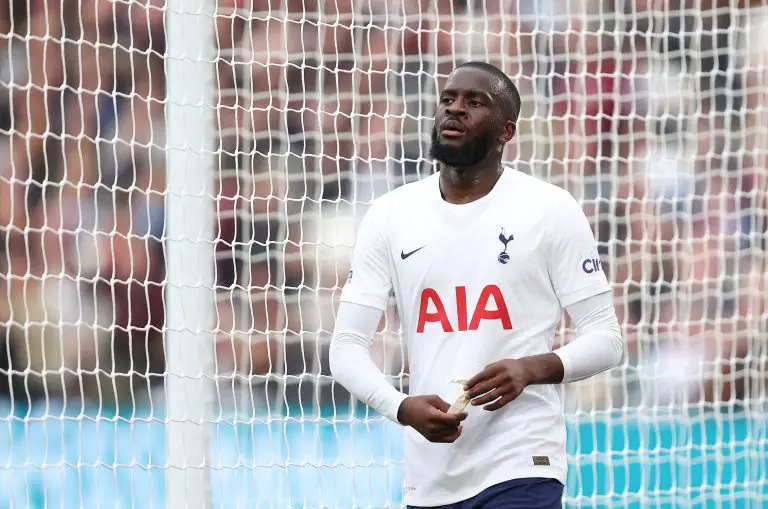Financial Expert Analyzes Terminated Tottenham Deal and Its Impact on PSR Compliance
Financial expert Stefan Borson has shed light on Tottenham Hotspur’s strategic financial move to terminate Tanguy Ndombele’s contract, effective June 30th. This decision, while significant in terms of its immediate financial implications, has broader ramifications for the club’s compliance with Profit and Sustainability Rules (PSR).
Read- Manchester United makes offer to ‘steal’ Tottenham transfer target
Ndombele, who joined Spurs in 2019 for a club-record fee of £54 million (potentially rising to £63 million with add-ons), has failed to meet the high expectations placed upon him. Despite being loaned out multiple times, no club opted to make his stay permanent, leaving Tottenham with a challenging financial decision.
Borson explained that the club faced a substantial financial burden by keeping Ndombele for the remainder of the season due to his high wages. The decision to terminate his contract with a £5 million pay-off was thus seen as a necessary step to mitigate longer-term financial impacts.
According to Borson, ending Ndombele’s contract will not have a significant impact on Tottenham’s finances, thanks to the club’s ample PSR flexibility. He stated, “There are not many benefits of terminating a contract from a PSR perspective but Spurs do not need to worry about that.”
Read- Danny Rose fears England abuse at Euros & recalls Serbia racism ordeal
The termination results in a write-off on Ndombele’s book value for the current year, which will appear as a loss on impairment in the club’s financial accounts. This move also accelerates wage expenses, though Borson suggests that Spurs likely negotiated a discount on the total wages Ndombele would have earned if he had stayed for the full year.
Borson further elaborated that the decision appears to be more about strategic housekeeping than immediate financial gain. By removing Ndombele from the payroll, Tottenham can focus on restructuring their squad and finances without the burden of his high wages.
“At the end of the day, they want him out of the club and so they take the hit and move on as they have enough PSR flexibility to be able to take those sorts of decisions,” Borson added.
While the immediate write-off might show as a loss, the long-term financial health of Tottenham remains strong. The flexibility to make such decisions reflects the club’s robust financial planning and adherence to PSR, ensuring they remain within the regulatory framework while making strategic moves to improve their squad and financial standing.
Tottenham’s decision to terminate Tanguy Ndombele’s contract, though costly in the short term, aligns with a broader strategy to maintain financial stability and squad efficiency. With ample PSR flexibility, the club can absorb this financial hit and move forward with their plans, focusing on building a more cohesive and financially balanced team for future seasons.
This strategic move underscores Tottenham’s commitment to prudent financial management and their readiness to make tough decisions for the overall benefit of the club’s long-term success.

